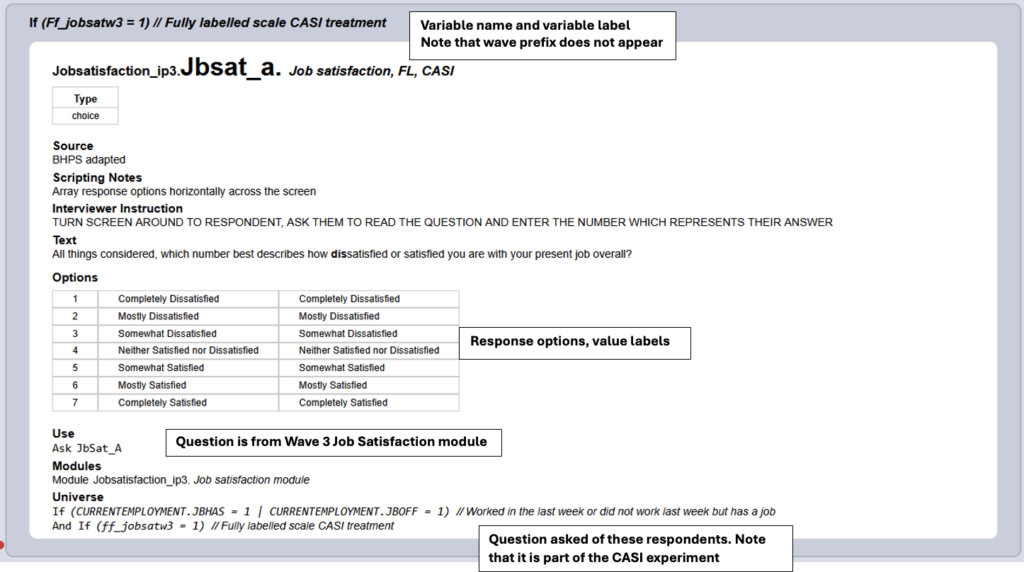There are multiple resources for learning about the study variables to plan analyses. These include the questionnaires, variable summaries prepared for each data file released, the code books for each data file, and the summary of derived variables.
You can also find the variables you need for your research by using the variable search. Here you can search by variable name, by data file or questionnaire module. This search provides links between questions, variables and data files.
Many of the basic (non-derived) variables can be learned about directly from the questionnaires. The example below shows a marked-up excerpt of the individual questionnaire from IP Wave 3. You can see that although the variable name consists of the listed variable name and the wave prefix, the wave prefix does not appear in the questionnaire. The document also shows the brief variable label, text of the question, source of the question and value labels for the response options. Showcards to help the respondent in answering are also marked as part of the questionnaire. For the Innovation Panel, it is particularly important to note that experimental groups may receive different versions of questions and that the responses may be recorded in different variables (For details on each experiment, see the relevant experiment sections Questionnaire design experiments: general issues and Questionnaire design experiments – specific topics
Example from Innovation Panel questionnaire

The online data documentation contains sections on:
- Citation – information on how to cite Understanding Society datasets
- Variable search – information about data files and all variables, as well as a search tool to find questions/variables
- Questionnaires – all the questionnaires used for each wave, in PDF format
- Technical reports – PDF files containing an overview of methodology used at each wave
- Fieldwork documents – all materials used in fielding the survey, such as advance letters, consent forms, and showcards
Help and Support for using the survey can be found in the User support forum. After a short registration data users can read past issues, FAQ’s and report any issues or queries of their own.



